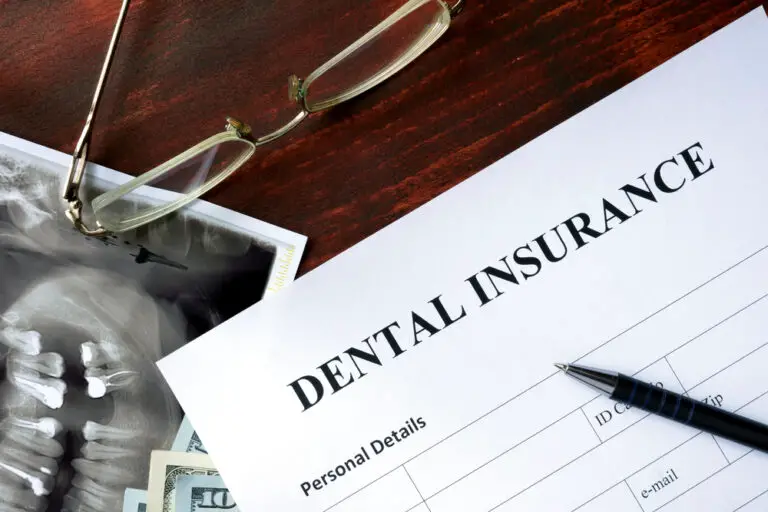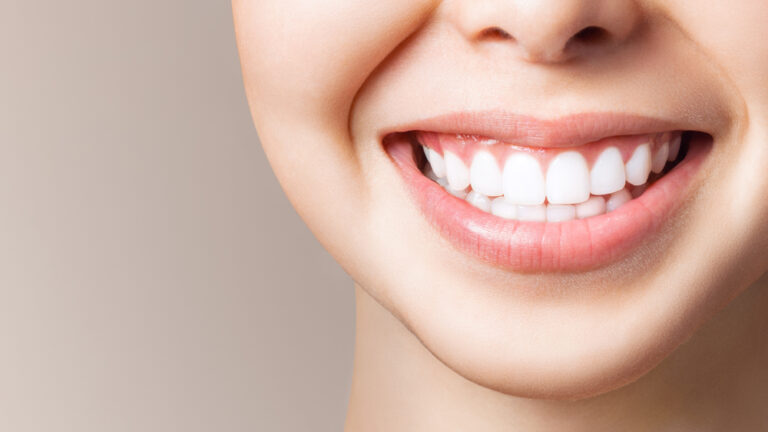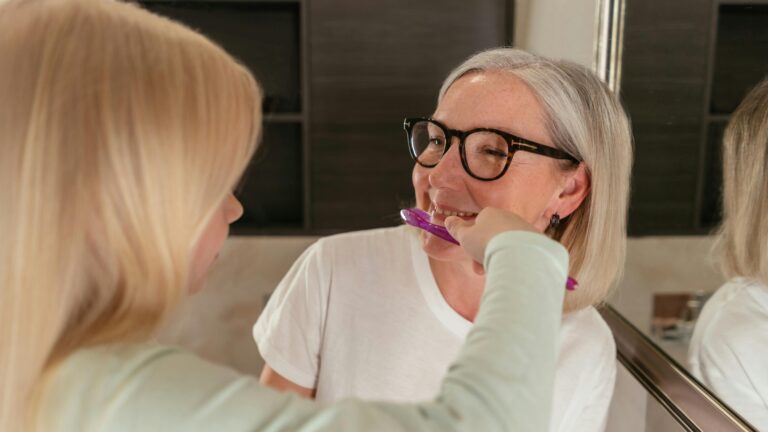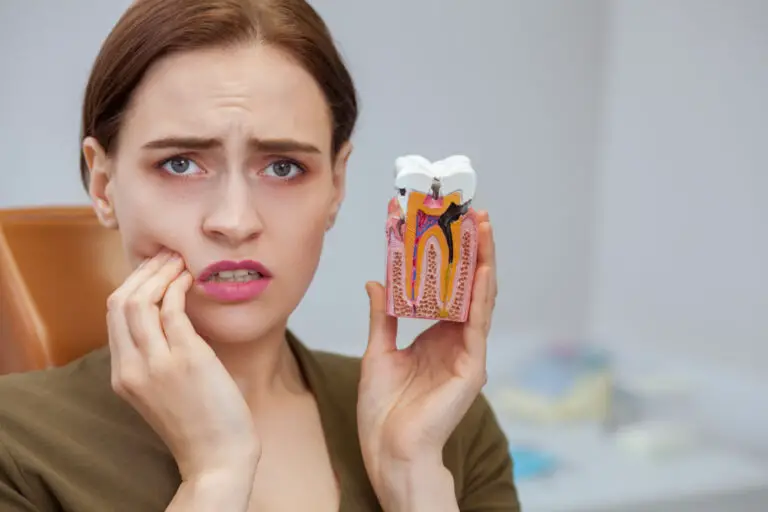Babies are a bundle of joy, but they can also be a bundle of surprises. One of the surprises parents may encounter is black stains on their baby’s teeth. While it may be alarming, it’s not uncommon. Understanding why black stains occur and how to prevent them can help parents keep their baby’s teeth healthy.
Baby teeth, also known as primary teeth, are important for a child’s development. They help with speech, chewing, and provide a path for permanent teeth to grow. However, they are also susceptible to stains and decay. Black stains on baby teeth can be caused by a variety of factors, including poor oral hygiene, diet, and medical conditions. Knowing the common causes can help parents identify and prevent black stains on their baby’s teeth.
Key Takeaways
- Understanding the importance of baby teeth and their role in a child’s development.
- Common causes of black stains on baby teeth, including poor oral hygiene, diet, and medical conditions.
- The importance of preventing black stains through proper oral hygiene, a healthy diet, and regular visits to the dentist.
Understanding Baby Teeth
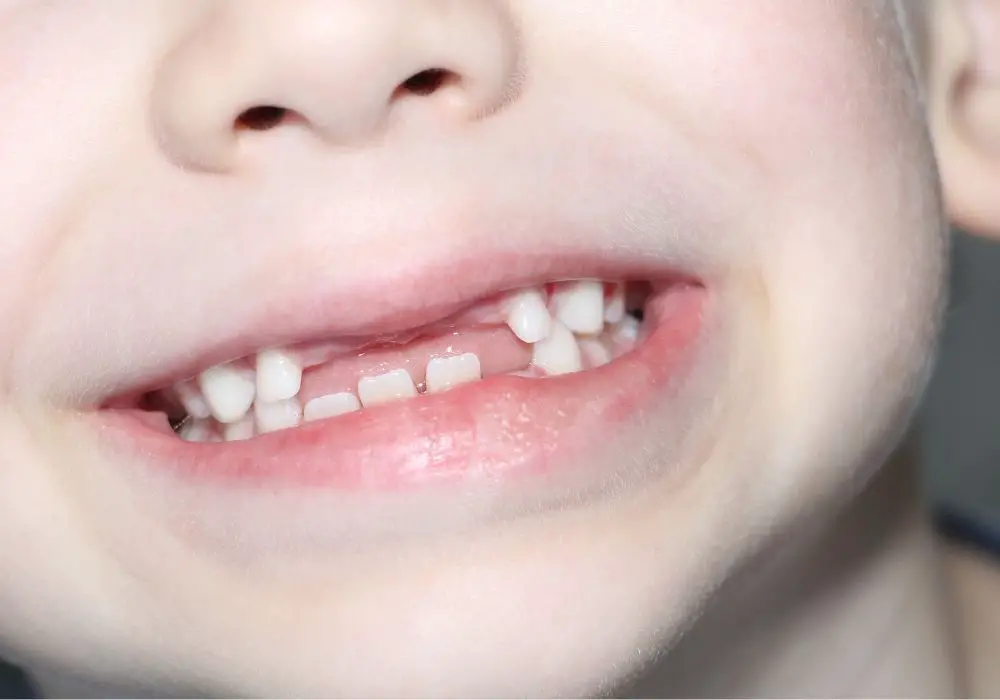
Baby teeth, also known as primary teeth, are the first set of teeth that your child will have. These teeth start to develop in the womb and usually begin to emerge through the gums between 6 months to 1 year of age. By the age of 3, most children have a full set of 20 primary teeth.
Baby teeth are important for several reasons. They help your child to chew and speak properly and also hold space in the jaw for the permanent teeth that will come in later. It is important to take good care of your child’s baby teeth to prevent tooth decay and other dental problems.
Baby teeth are not as strong as adult teeth and are more susceptible to decay. This is because the enamel, which is the hard outer layer of the tooth, is thinner in baby teeth. Therefore, it is important to establish good oral hygiene habits early on to keep your child’s teeth healthy.
In the next section, we will discuss some of the reasons why your baby may have black stains on their teeth.
Common Causes of Black Stains
Black stains on baby teeth can be concerning for parents. However, there are several common causes of these stains that are not necessarily harmful. Understanding the causes can help parents take appropriate measures to prevent or treat them.
One of the most common causes of black stains on baby teeth is chromogenic bacteria. This type of bacteria is found in the upper respiratory tract and can cause pigmentation on the teeth. It is not harmful and can be removed with proper dental hygiene.
Another common cause of black stains is iron supplements. Iron supplements can cause teeth to turn black or gray. If your baby is taking iron supplements, talk to your pediatrician about the appropriate dosage to prevent staining.
In some cases, black stains can be caused by fluorosis. Fluorosis occurs when a child is exposed to too much fluoride, which can cause brown or black spots on the teeth. Parents should be careful not to use too much fluoride toothpaste and to monitor their child’s fluoride intake.
Finally, poor dental hygiene can also cause black stains on baby teeth. Inadequate brushing and flossing can lead to the buildup of plaque and bacteria, which can cause discoloration. Parents should ensure that their child brushes and flosses regularly and visits the dentist for regular checkups and cleanings.
In summary, black stains on baby teeth can be caused by a variety of factors, including chromogenic bacteria, iron supplements, fluorosis, and poor dental hygiene. Understanding the causes can help parents take appropriate measures to prevent or treat them.
Effects of Diet on Baby’s Teeth
Role of Sugary Foods
A baby’s diet can greatly impact the health of their teeth. Foods and drinks high in sugar can lead to tooth decay and black stains on teeth. When babies consume sugary foods, the bacteria in their mouth produce acid that can erode the enamel on their teeth. This can lead to cavities and discoloration.
It is important to limit the amount of sugary foods and drinks that babies consume. Sugary snacks and beverages should be given in moderation and avoided before bedtime. Instead, opt for healthier snacks like fruits and vegetables that can help clean teeth and promote good oral hygiene.
Impact of Certain Beverages
Certain beverages can also cause black stains on a baby’s teeth. For example, formula and breast milk can contain natural sugars that, when left on teeth for extended periods, can lead to tooth decay. Fruit juices and sports drinks can also be high in sugar and contribute to tooth decay.
It is recommended to limit the amount of fruit juice and sports drinks that babies consume and to avoid giving them before bedtime. Instead, offer water or milk, which are better for teeth and overall health.
In summary, a baby’s diet plays a crucial role in the health of their teeth. Sugary foods and certain beverages should be consumed in moderation to prevent tooth decay and black stains on teeth. Opt for healthier snacks and drinks to promote good oral hygiene and overall health.
Importance of Oral Hygiene
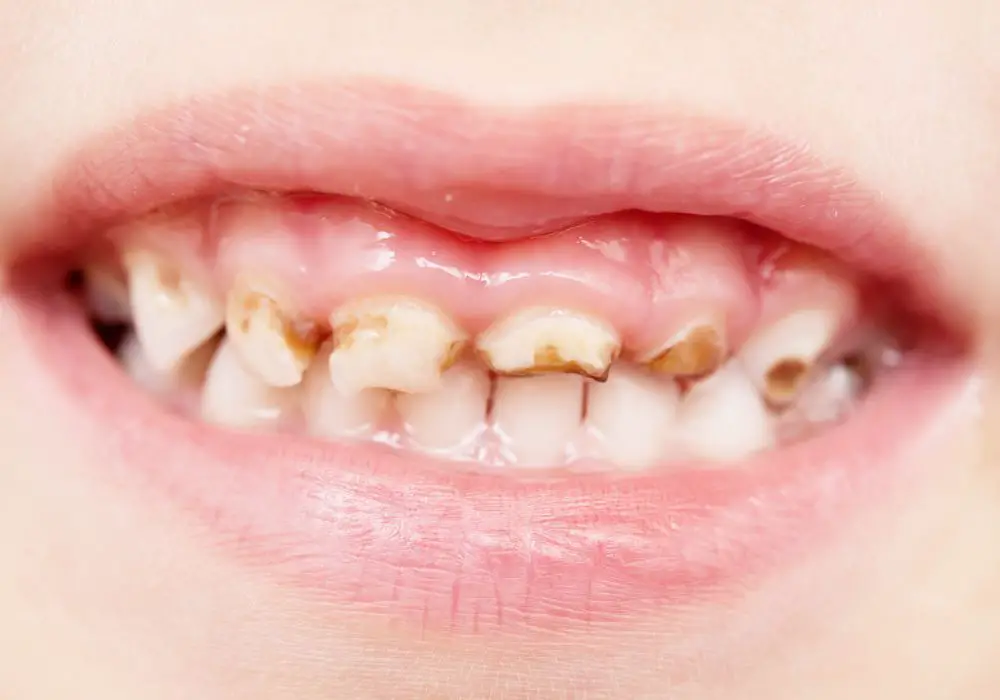
Maintaining good oral hygiene is crucial for preventing tooth decay and gum disease in babies. Poor oral hygiene can lead to the buildup of bacteria, which can cause black stains on teeth. Regular brushing and proper use of toothpaste can help prevent these stains and promote healthy teeth and gums.
Regular Brushing
It is important to start brushing your baby’s teeth as soon as they start to come in. Use a soft-bristled toothbrush and plain water to gently brush their teeth twice a day. As your baby grows, you can introduce a pea-sized amount of fluoride toothpaste to their brushing routine. Brushing should be done for at least two minutes each time.
Proper Use of Toothpaste
When using toothpaste, make sure to use only a small amount and supervise your baby to prevent swallowing. Fluoride toothpaste can help strengthen tooth enamel and prevent cavities, but too much fluoride can lead to fluorosis and black stains on teeth. Consult with your dentist or pediatrician to determine the appropriate amount of fluoride toothpaste for your baby’s age and needs.
Maintaining good oral hygiene is an important part of your baby’s overall health. Regular brushing and proper use of toothpaste can help prevent black stains on teeth and promote healthy teeth and gums.
Medical Conditions Causing Black Stains
There are several medical conditions that can cause black stains on a baby’s teeth. Here are two common conditions:
Baby Bottle Tooth Decay
Baby bottle tooth decay, also known as early childhood caries, is a common condition that can cause black stains on a baby’s teeth. This condition occurs when a baby’s teeth are frequently exposed to sugary liquids such as milk, formula, or fruit juice. The sugar in these liquids can combine with bacteria in the mouth to create acid, which can erode the enamel on the teeth and cause decay.
To prevent baby bottle tooth decay, it is important to avoid giving your baby sugary liquids in a bottle. Instead, give your baby water or a pacifier. If you do give your baby sugary liquids, make sure to clean their teeth afterwards.
Enamel Hypoplasia
Enamel hypoplasia is a condition that occurs when a baby’s tooth enamel does not develop properly. This can cause the teeth to appear discolored or stained, including black stains. Enamel hypoplasia can be caused by a variety of factors, including:
- Malnutrition during pregnancy
- Premature birth
- Infection during pregnancy
- Exposure to certain medications or chemicals
If your baby has enamel hypoplasia, it is important to take them to a pediatric dentist for treatment. Treatment may include dental bonding or crowns to protect the affected teeth.
It is important to note that black stains on a baby’s teeth can also be a sign of more serious dental problems, such as tooth decay or infection. If you notice black stains on your baby’s teeth, it is important to take them to a pediatric dentist for an evaluation.
Professional Dental Care for Babies
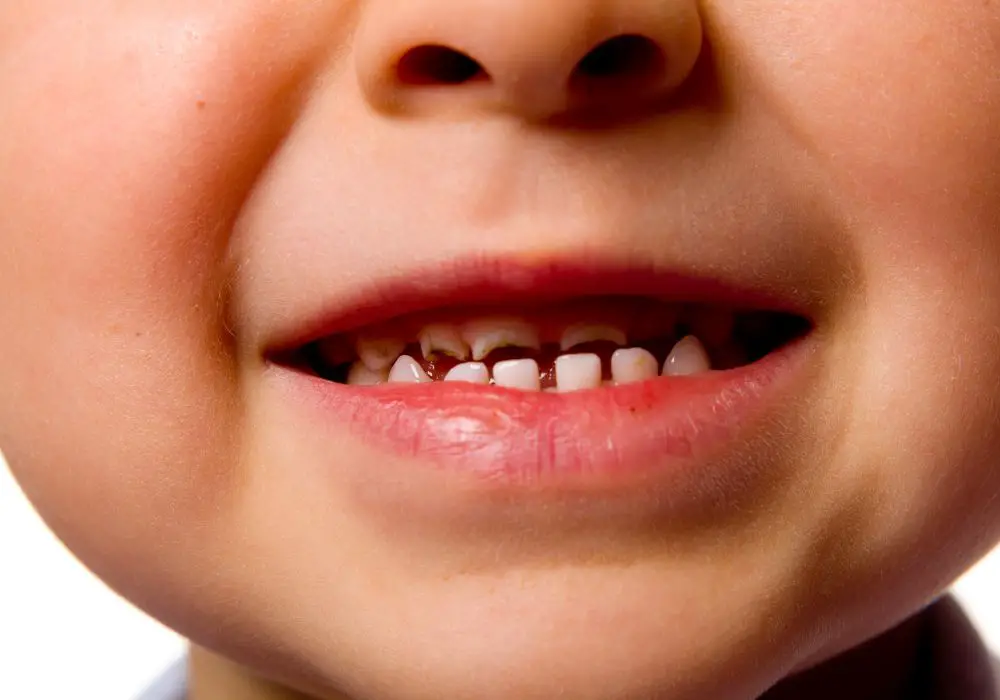
It is important to establish good dental care habits for your baby as early as possible. Regular visits to a pediatric dentist can help ensure your baby’s teeth are healthy and free from any black stains or other discoloration.
During your baby’s first dental visit, the dentist will examine their teeth and gums to check for any signs of decay or other dental issues. The dentist may also provide guidance on proper oral hygiene techniques, including how to brush and floss your baby’s teeth.
In addition to regular dental checkups, there are several things you can do at home to help keep your baby’s teeth healthy. These include:
- Brushing your baby’s teeth twice a day with a soft-bristled toothbrush and a pea-sized amount of fluoride toothpaste.
- Limiting sugary foods and drinks, which can contribute to tooth decay.
- Encouraging your baby to drink water instead of sugary drinks.
- Avoiding putting your baby to bed with a bottle or sippy cup, as this can lead to tooth decay.
By working with a pediatric dentist and establishing good dental care habits at home, you can help ensure your baby’s teeth stay healthy and free from black stains or other discoloration.
Frequently Asked Questions
What causes black stains on baby teeth?
Black stains on baby teeth can be caused by a variety of factors such as bacterial infection, inadequate oral hygiene, tooth injury, weak enamel, or exposure to too much fluoride. Medications containing iron, such as vitamins, or taking the antibiotic tetracycline during pregnancy or breastfeeding can also cause stains on baby teeth.
How do you get black stains out of baby teeth?
The best way to get rid of black stains on baby teeth is by practicing good oral hygiene habits such as brushing and flossing regularly. Professional dental cleaning can also help remove stains. In some cases, tooth whitening procedures may be recommended by a dentist.
Why are my 7 month olds teeth turning black?
There could be several reasons why a 7-month-old’s teeth are turning black. It could be due to bacterial infection, inadequate oral hygiene, or even injury to the tooth. It is important to consult a dentist to determine the cause and appropriate treatment.
Is it normal for babies to have black teeth?
No, it is not normal for babies to have black teeth. Black teeth can be a sign of tooth decay or other dental problems. It is important to consult a dentist if you notice any discoloration or staining on your baby’s teeth.
What are the vertical black lines on baby teeth?
Vertical black lines on baby teeth can be a sign of tooth decay. It is important to consult a dentist to determine the cause and appropriate treatment.
Why do baby teeth look clear around the edges?
Baby teeth may look clear around the edges due to the natural process of tooth development. As the tooth enamel forms, it may appear translucent or clear around the edges. However, if you notice any discoloration or staining on your baby’s teeth, it is important to consult a dentist.

